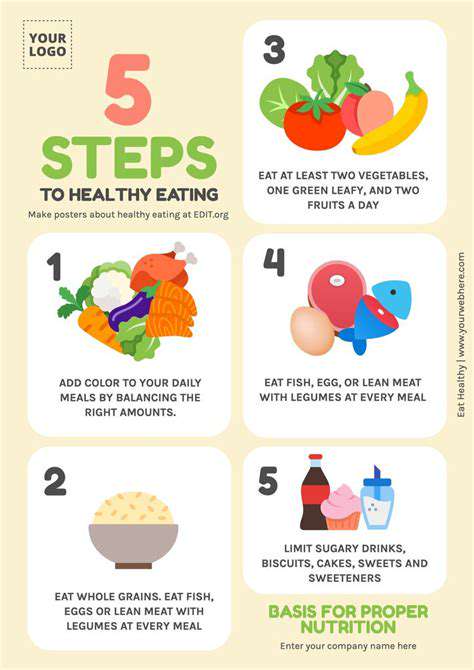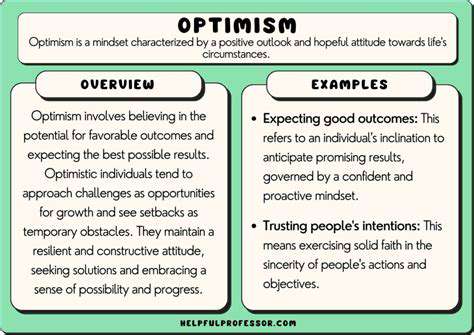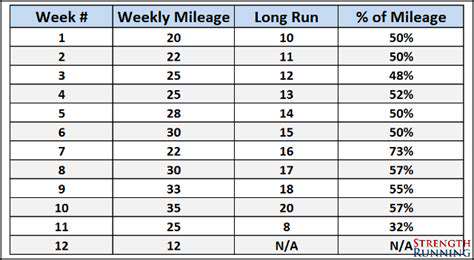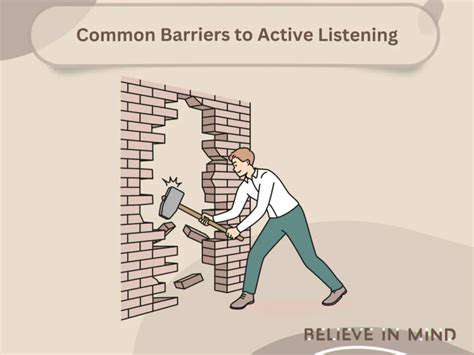Healthy Eating Tips for Travelers
Maximizing Healthy Choices in Restaurants

Prioritizing Restful Sleep
Sleep is fundamentally crucial for physical and cognitive restoration, impacting everything from mood regulation to immune function. Adequate sleep allows the body to repair and rebuild tissues, consolidate memories, and regulate hormones, all of which directly contribute to overall well-being. A consistent sleep schedule, a relaxing bedtime routine, and a sleep-conducive environment are vital components for maximizing the restorative power of sleep.
Creating a calming and dark environment in your bedroom, avoiding caffeine and alcohol before bed, and engaging in calming activities like reading or light stretching can significantly improve your sleep quality and duration. These habits, when consistently practiced, can foster a deeper, more rejuvenating sleep experience.
Nurturing Relaxation Techniques
Mindfulness and relaxation techniques, like meditation or deep breathing exercises, play a pivotal role in fostering a sense of calm and reducing stress. Engaging in these practices, even for a short period daily, can help manage the negative effects of stress on the body and mind, promoting a more balanced and healthy state of being.
Stress, often a silent saboteur of well-being, can severely hinder the body's ability to rest and recover. Mindfulness practices provide tools to recognize and manage stress effectively, allowing the body to properly unwind and restore. Regular practice can lead to improved concentration, reduced anxiety, and better overall mental clarity.
Optimizing Physical Recovery
Physical activity is essential for maintaining physical health and well-being, but equally crucial is allowing the body adequate time to recover. Post-exercise stretching and light activities like yoga or foam rolling can aid in muscle recovery and reduce soreness, preventing potential injuries and promoting optimal physical function. Incorporating active recovery strategies alongside intense workouts is a key component of a healthy lifestyle.
Active recovery strategies, like light cardio or stretching, promote blood flow to muscles and aid in the removal of metabolic waste products. This process is essential for muscle repair and growth, preventing delayed-onset muscle soreness and promoting long-term physical health. Rest and recovery are as important as the physical activity itself.
Embracing Environmental Factors
The surrounding environment plays a significant role in promoting healthy rest. Creating a quiet, comfortable, and organized space dedicated to rest can facilitate a more relaxed and restorative experience. This includes minimizing distractions, ensuring optimal temperature and lighting conditions, and ensuring the space is free from clutter or visual stressors. This environment should be conducive to relaxation and restorative rest.
A supportive and organized environment can greatly influence the quality of rest. Minimizing noise, light pollution, and disruptive elements can significantly enhance the restorative power of rest. Taking control of your environment can be a powerful tool in maximizing healthy rest.
Embracing Healthy Eating Habits in Hotels and Hostels

Prioritizing Whole Foods
A cornerstone of healthy eating is prioritizing whole, unprocessed foods. These foods, including fruits, vegetables, lean proteins, and whole grains, provide essential vitamins, minerals, and fiber, promoting optimal bodily functions. Choosing whole foods over processed options significantly reduces the intake of unhealthy fats, sugars, and sodium, contributing to improved overall health and well-being. These foods often come with a wide range of nutrients and are naturally more filling, helping to manage appetite and cravings.
Fruits and vegetables are abundant sources of vitamins and minerals. They offer a wide array of antioxidants that protect cells from damage and support a healthy immune system. Lean protein sources, such as fish, poultry, and beans, are crucial for building and repairing tissues. Whole grains, like brown rice and quinoa, provide sustained energy and vital fiber that promotes healthy digestion.
Mindful Portion Control
Maintaining a healthy weight and preventing potential health issues often hinges on mindful portion control. Understanding appropriate portion sizes for various foods can significantly impact calorie intake, preventing overconsumption and promoting a balanced diet. Recognizing and respecting your body's signals of fullness is an important step in achieving mindful portion control. This includes paying attention to hunger and fullness cues rather than relying solely on pre-determined portion sizes.
Using smaller plates and bowls can also be a helpful strategy. This visual cue can help you eat less without feeling deprived. Consider using measuring cups and spoons to accurately gauge portion sizes for specific foods. This proactive approach to portion control is a crucial aspect of a healthy eating lifestyle.
Hydration and its Importance
Staying adequately hydrated is fundamental to maintaining optimal bodily functions and promoting overall health. Water is essential for countless bodily processes, including nutrient absorption, waste elimination, and temperature regulation. Dehydration can lead to various health issues, including fatigue, headaches, and impaired cognitive function. Drinking sufficient amounts of water throughout the day supports these processes.
Carrying a reusable water bottle and making a conscious effort to sip water frequently can help you stay hydrated. Many people find it helpful to set reminders to drink water throughout the day. Including hydrating foods, such as fruits and vegetables, in your diet can also contribute to your daily fluid intake.
Incorporating Regular Exercise
Exercise plays a vital role in a healthy eating plan. It is not just about weight management; it encompasses numerous health benefits, including improved cardiovascular health, stronger bones, and a reduced risk of chronic diseases. Regular physical activity can help your body process nutrients more effectively, supporting the overall health benefits of a healthy diet. A combination of cardiovascular and strength-training exercises can lead to a healthier and more energetic lifestyle.
The Role of Stress Management
Stress can significantly impact dietary habits. When stressed, individuals often turn to unhealthy coping mechanisms, such as overeating or consuming excessive amounts of processed foods. Understanding and managing stress effectively can contribute to healthier eating patterns. Effective stress management techniques, such as mindfulness practices or engaging in relaxation activities, can help you maintain a healthy relationship with food. This can lead to long-term improvements in overall well-being.
Finding healthy ways to cope with stress is an important aspect of maintaining a balanced diet and lifestyle. Prioritizing sleep, spending time in nature, and engaging in hobbies you enjoy can positively influence stress levels and eating habits. Stress management is often an overlooked but crucial factor in a holistic approach to healthy eating.
Staying on Track with Healthy Snacks and Meals
Planning Ahead for Healthy Eating on the Go
Traveling often disrupts our usual routines, making healthy eating a challenge. To stay on track, pre-plan your snacks and meals as much as possible. Think about the types of foods you enjoy and that are readily available at your destination. Researching local markets or grocery stores in advance can help you find healthy options and avoid impulse purchases of less nutritious choices, especially when you're feeling tired or stressed from travel.
Packing healthy snacks like fruits, vegetables, nuts, and yogurt is crucial. This way, you have nutritious options readily available to curb hunger pangs between meals and avoid unhealthy convenience foods or restaurant meals that are often higher in calories and less nutritious. Don't underestimate the power of simple planning in maintaining your healthy eating habits when traveling.
Hydration is Key During Travel
Staying hydrated is paramount for overall well-being, especially during travel when you're exposed to different climates and temperatures. Carry a reusable water bottle and refill it frequently throughout the day. Avoid sugary drinks and excessive caffeine, which can dehydrate you. Opt for water, infused water, or unsweetened tea as refreshing alternatives to help stay hydrated.
Proper hydration can improve digestion, energy levels, and cognitive function, all of which are essential when navigating unfamiliar environments and maintaining a healthy lifestyle during travel. Keeping yourself well-hydrated is a simple but effective strategy to enhance your overall travel experience.
Making Healthy Choices at Restaurants
Dining out can often present a challenge to maintaining a healthy diet. Look for restaurants that offer healthy options, such as grilled or baked dishes, salads, or lean proteins. Opt for smaller portions to avoid overeating. Choose healthy dressings and avoid creamy sauces. You can also ask about ingredient substitutions to adjust meals to your liking while keeping them aligned with your dietary needs.
Communicating your dietary preferences with the waiter or server can lead to more informed choices and ensure your meals align with your healthy eating goals. Don't be afraid to ask questions, and remember that small adjustments can make a big difference in maintaining a healthy lifestyle while traveling.
Understanding Portion Control When Traveling
Portion control is crucial for maintaining healthy eating habits, regardless of whether you're at home or on the road. When dining out, be mindful of portion sizes. Smaller portions can help you avoid overeating and consuming unnecessary calories. If you're packing your own snacks, pay attention to the serving sizes listed on the packaging to ensure you're not consuming more than you intended.
Portion control is a key aspect of healthy eating. It takes conscious effort to manage portions effectively, whether you are eating out or packing your own meals. Understanding portion sizes and making conscious choices can significantly impact your overall health and well-being during travel.
Utilizing Healthy Food Options at Airports and Hotels
Airports and hotels often offer a range of food options, but not always the healthiest choices. Look for fruits, vegetables, yogurt, or other healthy snacks available in the airport or hotel's food court or vending machines. If possible, pack some healthy snacks or breakfast items for your hotel room to avoid unhealthy impulse purchases.
Many hotels and airports now offer healthier options, such as fresh fruit, salads, or yogurt parfaits. Taking advantage of these options can help you maintain a healthy diet even when you're traveling. Being prepared with healthy options can save you money and calories, as well as improve your overall travel experience.
Incorporating Physical Activity into Your Travel Plans
Integrating physical activity into your travel plans is a great way to maintain a healthy lifestyle. Explore walking or cycling tours if available. Take advantage of opportunities to hike or climb if the destination allows. Even a daily walk around a local park or neighborhood can make a difference in maintaining your fitness routine while traveling.
Adding physical activity to your daily travel routine not only benefits your physical health but also enhances your travel experience. It allows you to discover hidden gems and local attractions while keeping your body active. This approach makes healthy eating even more effective by complementing your dietary choices with a move-oriented plan.
Read more about Healthy Eating Tips for Travelers
Hot Recommendations
-
*Guide to Managing Gout Through Diet
-
*Best Habits for Financial Well being
-
*How to Build a Routine for Better Mental Health
-
*How to Eat Healthy on a Budget [Tips & Meal Ideas]
-
*Guide to Practicing Self Acceptance
-
*How to Incorporate More Movement Into Your Day
-
*Guide to Managing Chronic Pain Naturally
-
*Guide to Building a Reading Habit for Well being
-
*Top 5 Weight Loss Supplements That Actually Work
-
*Best Exercises for Postpartum Recovery [Beyond Abdominal Work]


![Best Meditation Apps for Beginners [2025 Review]](/static/images/26/2025-05/Top3MeditationAppsforBeginnersin2025.jpg)








